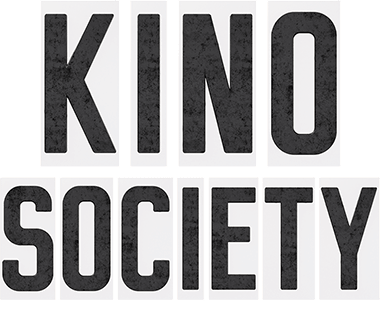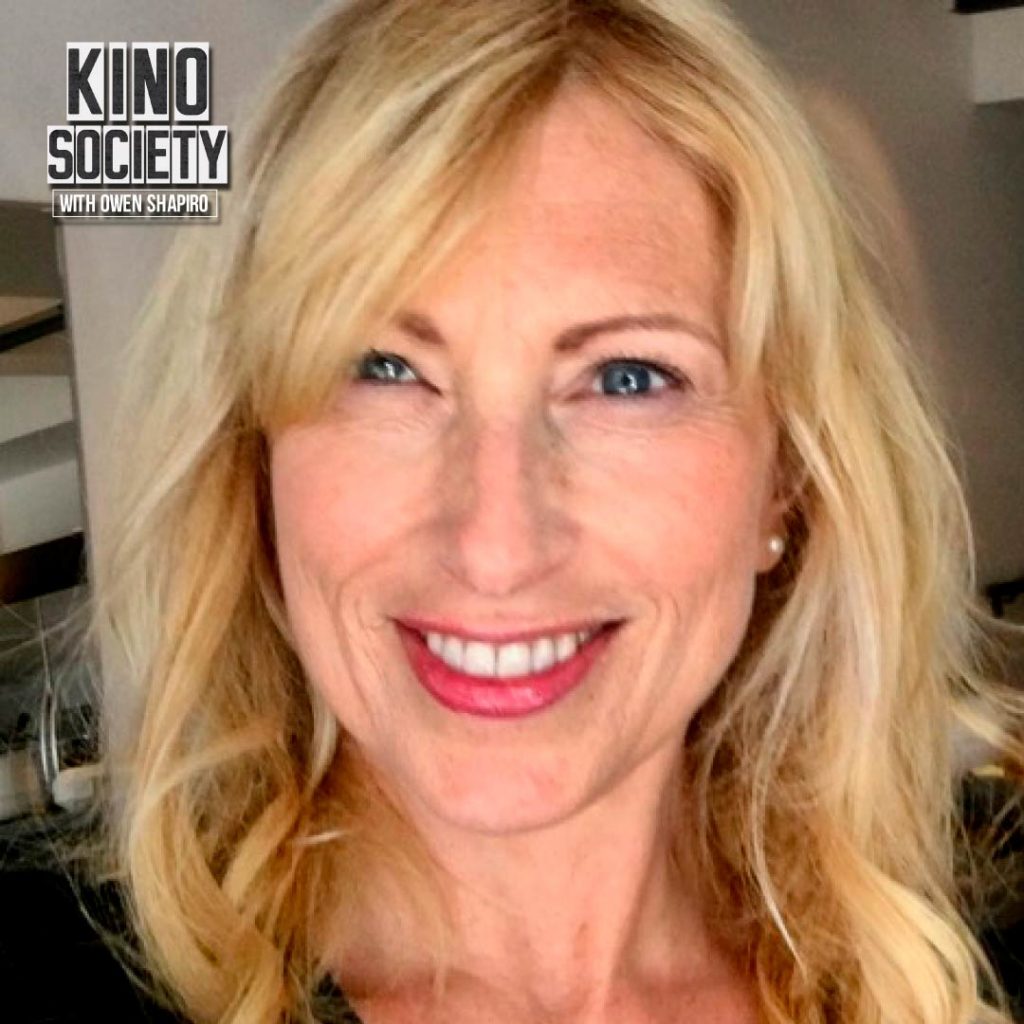From Being A Lawyer to Playing One on The Social Network With Denise Grayson
Owen Shapiro 00:04
Welcome to Kino Society with Owen Shapiro. In today’s episode we have Denise Grayson, a multi disciplined actor, producer and attorney, founder of Denise Grayson Productions. Her feature films and development include Walter Mosley’s Killing Johnny Fry: A Sexistential Novel. Shows Blood And The Rye, her most recent producing efforts is 2021 Oscar submission, The Crossing about Venezuela was escalating humanitarian crisis. Welcome to Kino Society, Denise.
Denise Grayson 00:46
Thank you. I Oh, and
Owen Shapiro 00:48
So what made you want to work in film?
Denise Grayson 00:50
Oh, wow, I guess I always wanted to have a creative life. I’ve always loved the storytelling aspect of it. And film is a very precious medium. So it’s a I’ve wanted to do other things too. But I’ve always had an interest in the story.
Owen Shapiro 01:05
Acting and producing are usually considered to be seven to less creative aspects of filmmaking those, so why did you decide to go for those
Denise Grayson 01:16
acting, I think, well, acting is who I am at my core. And I may have done a few other things when I was probably your age, and later, but when I was a kid, I acted, I loved it, I loved getting lost in, in someone else’s language, being able to make someone else think or feel something from being a part of that think the collaborative effort, I don’t think I’d make I as a producer, I work on scripts as well, but I don’t think I’d make a really good writer, as a solo person. So um, and I find everything to as a creative producer, it gives you an opportunity to be creative as well. But I find that thing to be freeing. complicated,
Owen Shapiro 01:58
Right. So what’s a regular workday like for you
Denise Grayson 02:01
A workday? Well, as an actor, you hope to get a workday because there are a lot of us and not a lot of jobs. But get up early. Always get to the set on time, you could tell I was early for this, too. You always want to be on time, because there’s so many other people were waiting on you, as every department has a need from you. Knowing your lines, really working on the lines and working on the material and knowing why you’re saying what you’re saying and who you’re saying it to. And being prepared. That’s that’s what the day consists of. They’re long days. Usually it depends on the type of film or show that you’re working on. So depending upon the budget I worked on, a lot of I was fortunate enough to work on a big movie and big movies, and I’ve worked on some really small and beautiful, financially smaller projects. And it’s always different. But you have to be prepared and ready. Are there any clear
Owen Shapiro 02:53
Differences between working on smaller productions and larger productions?
Denise Grayson 02:59
The size of your trailer? No, the work is the same. I think your preparation is the same, you’ve got to be ready. As soon as the director says, Go. You want to have that language come out of your mouth easily. You want to be able to get it on your first take, perhaps because the money isn’t there. But you want to do the same thing when you’re working on a on a larger budget project as well, because the time is money, but you might have more opportunities to do it again and again and again.
Owen Shapiro 03:28
So you’ve also worked in theater productions, right? So how is
Denise Grayson 03:34
how I love the stage love theater live?
Owen Shapiro 03:37
So how is acting in the theater different from acting and film?
Denise Grayson 03:41
I don’t know if I will give you the answer everybody else would give you I think it’s the same. I think no matter what you do, you have to tell the truth. You’ve got to prepare the same way. Maybe perhaps doing something in the theater, the sound of your voice, but with microphones and cameras and sound and equipment. Now, I don’t think it makes that much of a difference. I’m going to give you two thoughts because whatever is big enough for the theater might be too big for the screen, you have to be aware that you’re in this very like I’m showing now there are a small box with with the screen. So some of it is is more internal, but the preparation is the same.
Owen Shapiro 04:22
So a lot of people often use the phrase theatrical acting to refer to more maybe dramatic performances. So what do you think about that? Do you think that that phrase holds true for it or maybe was true in the past?
Denise Grayson 04:37
It may have been true before my time. No way before I think that goes back to sound because it was bigger. And I think people in movies talk louder. V they spoke differently than we do if you take a look at Brando and post Brando it’s it’s a lot more natural, his style. I personally wouldn’t want any In my work to be theatrical, if I’m angry, I want to be angry. And I want you to believe me, and I want it to be real and truthful. So I veer away from that term. But I think, the grandness of the theater, if that’s what you’re talking about is a beautiful thing. And sound does have to reach you do have to reach the last person in the back of the audience when we get back into the theater, after COVID. But, yeah, trickle is not a word that I personally would use. Because again, I think I’ve said it before truth and believability are what I want, and hope my work to be realistic. That’s
Owen Shapiro 05:36
so do you think that your experience as an actor helped you as a producer in any way,
Denise Grayson 05:43
I think everything that you do in life helps you to the next step. But as a producer, understanding the needs of actors understanding material, so understanding the directors needs, everyone else’s needs the story, if you’re watching it, if you’re watching the film unfold as an actor, again, you can go back to that believability portion. So I can perhaps look in not whether it’s in the script, or in a I can kind of my own mind spot it if I feel like there’s a moment that’s not truthful to the story. I also have a business background and that helps in producing as well. But I think for anyone, I don’t know who your audiences but I think for anyone listening, no matter what you do, helps you what the next thing that you do you take it with you. So certainly being an actor, helps as a producer, I think it would help as a director.
Owen Shapiro 06:36
So actually, a lot of people I’ve heard many times that people say business degree helps you with pretty much everything. So how do you think that being familiar with business helps you as a producer?
Denise Grayson 06:49
Well, every it’s show business, it’s my dad says this all the time, it’s not show art, even though I’m an artist at heart. It’s it is a business. So you your bottom line is can you afford to do what you’re doing? Can you make your day can you stick to your budget, there was a man by the name of Roger Corman, everybody talks about, I’d like to say I went to this school of producing, I never worked for him. So many people I know work for him. But he would say, can you produce it for this much. And then you’d come back and he’d say, Well, can you produce it for this much and always bring the budget lower and lower. So you want to be able to certainly keep your financial aspect intact, and other things that you learn interactions with people how to make a deal, things of that nature.
Owen Shapiro 07:37
So your first big movie experience was in the social network, which is a very, very famous movie have a set
Denise Grayson 07:46
was great. It was a wonderful experience for any actor to be able to work with all of those people. And I also go back to what we were chatting about before, that’s a perfect example of the difference between a large budgeted film in a small budget film, it felt very intimate working on that film really wasn’t in some ways, very different than when I’ve worked on a Columbia thesis movie. But the experience was extraordinary.
Owen Shapiro 08:14
So do you have any preferences for the productions you’d like to work with?
Denise Grayson 08:19
I like to work with nice people. And that’s something as a producer to really find your group who you can work with and trust and have a language going back and forth. So I like to work. That’s really, it might be not an apparent answer, but I like to work on everything it doesn’t. I like comedic, dramatic, historical, as an actor, anything and everything. And as a producer now stories, it’s just nice. It’s nice to be able to help people think about certain social issues, personal issues, it makes somebody think and feel I think we do our job if you’re able to help that along, or bring light to a certain issue.
Owen Shapiro 09:08
So as a producer, how often do you run into creative conflicts with the other group?
Denise Grayson 09:15
Well, in in life, I’m not the most conflict averse. So it helps me as a producer, I’ve been a mediator in the past to in, in business, you listen and you understand I think you want to help your director, find his her vision and talk it out and be rational and reasonable. I don’t believe there has to be conflict if people are heard, you have to stick again. Time is always of the essence because time is money. So just looking at needs anticipating things before they happen trying to avoid obstacles, or trying to avoid conflict and true.
Owen Shapiro 09:57
I’m talking mostly about different envision, maybe between you and the director or the writer?
Denise Grayson 10:04
I think it’s the director’s vision. I think it’s the writers vision. I’m working on a project. Now, you mentioned Rajiv Shah, if that another project won the riot feature, and it’s nice being together from the beginning, we talked about it. But I always tell him, it’s it’s his picture. It’s how you approach it. If something is blaring, I haven’t found it difficult to find resolution. But I think listening and understanding and communicating your perspective in your point of view, and in a cert in a way in which the other person can hear can hear it, but I haven’t had that in my short experience.
Owen Shapiro 10:44
So Oh, I forgot to mention how does being a lawyer and your life as a filmmaker, it’s helpful.
Denise Grayson 10:54
I, you know, oh, and I hit it for a long time. When I left New York and went to Los Angeles to really try to really try to pursue this career, I didn’t want people to look at me as a lawyer, I hit it. And then who thought my best opportunity would be playing a lawyer in a film, but it helps immensely. It helps being comfortable saying who you are, as I mentioned previously, whatever you’ve done up until this point is helpful. It certainly helps me as a business person to look, there’s a lot that I can do as a producer, where we don’t have to pay another lawyer. You think you’re trained, and so many other people or two people have never, you don’t need a law degree to think a certain way. But it does teach you a certain type of reasoning. And, you know, I work with contracts for many years as a lawyer, so that helps.
Owen Shapiro 11:44
So now a few more questions about you in particular, do you have any favorite movies for directors?
Denise Grayson 11:50
Well, I have to say David Fincher has always been a favorite director and how lucky that I got to work with him. I love Rajiv Shah. He’s a new director who I love. And I think he’s a beautiful filmmaker. Gosh, I don’t have favorites. Every movies, I could say, Casa Blanca, but I could also say there’s a movie called city Island, about 10 years ago, an independent smaller film with Julianna Margulies and Andy Garcia. A favorite movie of mine. My Favorites run the gamut. I don’t I’m not a believer in astrology. But if I went to my astrological chart, I would probably say I can’t make a decision on what’s my favorite.
Owen Shapiro 12:34
So any favorite actors have it?
Denise Grayson 12:38
Oh, gosh. So hard. Everybody is so good and so talented. I love female actors. I love Kate Winslet work. I love Tony Colette’s work this year. Oh, gosh, Carey Mulligan promising a woman breathtaking work. There’s there’s so many,
Owen Shapiro 12:58
so many. So what would you say to someone who wants to enter the world of cinema or maybe business or theater,
Denise Grayson 13:06
try everything. Never think you can’t do anything. Always try to do your best. Don’t ever think you have to do more than your best because your best is enough. And if you’re lucky enough, go with what your passion is that you’re able to love. You’re lucky if you’re able to do what you love. What brings you joy.
Owen Shapiro 13:23
So can you tell us a little bit more about your current project?
Denise Grayson 13:27
Sure. There’s the short documentary that I’m a producer on the crossing, and that’s that film festivals and it’s about the Venezuelan humanitarian crisis. It’s my first foray into documentaries. A short carry Tiger to mountain is also going to some festivals. And that’s about caregiving. It’s a father and daughter trying to resolve their relationship. feet. Some of the features that I’m in development trying to bring to fruition were carried blood in the ride with Rajiv Shah, which takes place in the 80s in Alabama. It’s a feature it’s a legal drama, thriller. He’s got a beautiful voice. There are so African American lawyer in the 80s. And she takes on a death phase case. It’s a legal legal case, Walter Mosley’s, we’ve developed a screenplay based on one of his novels, killing Johnny Frye.
Owen Shapiro 14:31
And so last but not least, how can my listeners find and connect with you?
Denise Grayson 14:35
They can always reach out to me on privately on Instagram, Denise great, I think you’ve got those candles there. I don’t know if you write them down. My email address people always reach out on emails or you can just go to Denise grace and calm and send me a note with pleasure. Love to encourage. So we were speaking about earlier. I just like to encourage everyone I never thought I’d be here talking to you. I’m so impressed by what you do. You don’t know where you’ll end up. I’ve done a couple of different things thus far and I hope to do even more. So just keep going. Oh,
Owen Shapiro 15:10
Thank you so much for being with us here. And that’s all for today. Don’t forget, you can subscribe to Kino Society on iTunes and Spotify.




